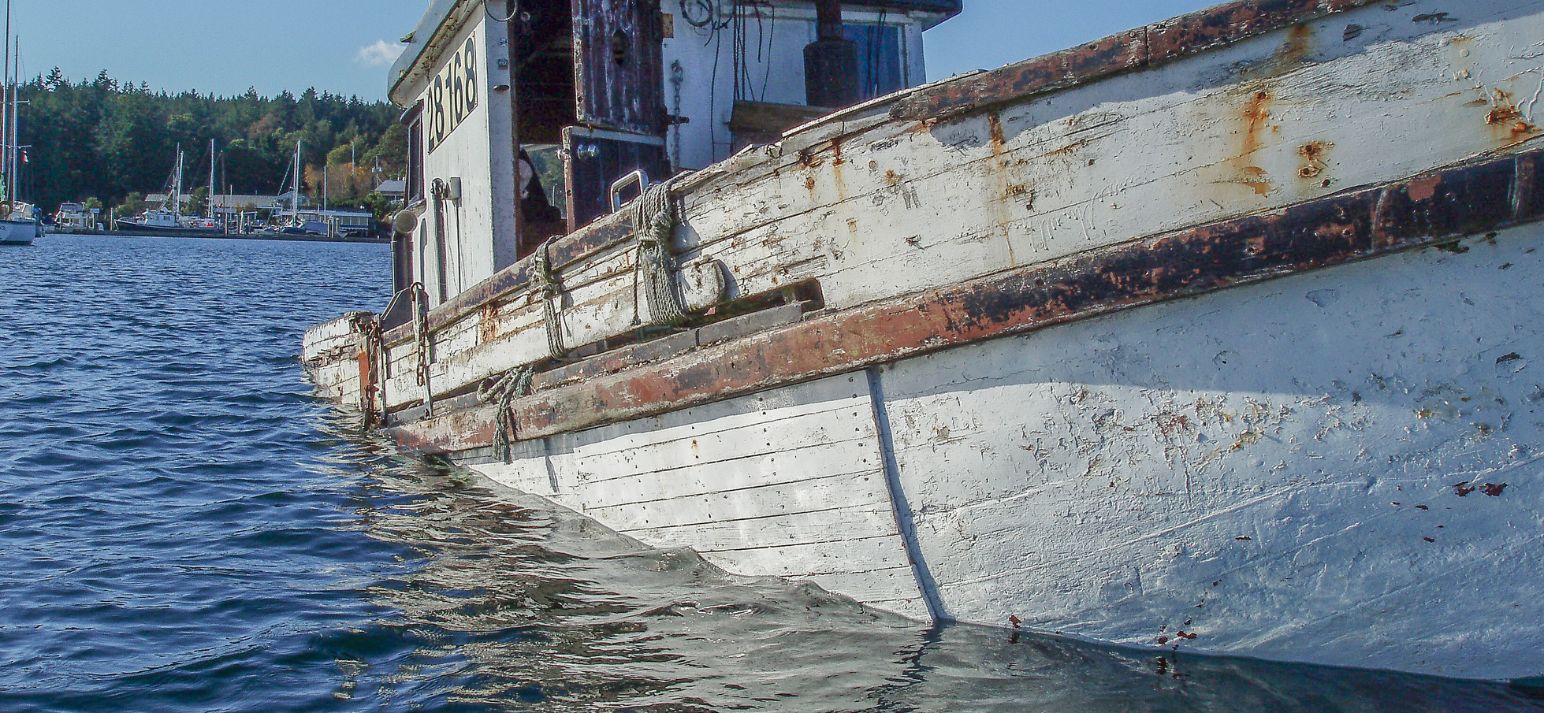
This month, on September 5, we attended a community discussion on Derelict Vessels in Ladysmith. The surrounding waters have a visibly higher rate of derelict vessels ranging in size and deterioration, with many locals calling them “Vessel Graveyards”. Lisa Marie Barron—the Nanaimo Ladysmith MP—organized this Town Hall meeting with local First Nations, experts, and community members in attendance to discuss these major issues and continued efforts to bring a National Strategy to Parliament with Bill C-344.
Many of the topics covered were reinforcing the dire need for a National Strategy to tackle the growing spread of derelict vessels, both in terms of how to deal with boats already in the water, and also robust measures of prevention. From the list of toxins including oils, fuels, PCB’s, paints, solvents, plastics, fiberglass, heavy metals, and many more contaminants—which all have detrimental effects on local ecosystems and communities—the high risk of environmental and economic impacts cannot be overlooked. As well, the rise in pollutants increases the risks associated with food contamination, an issue that affects us all, but is central to Indigenous food sovereignty, marine governance, and reconciliation.
Addressing the problem of derelict vessels is essential to protecting marine biodiversity, ensuring the safety and security of food supplies, and safeguarding human health. As an example, marine organisms like shellfish can absorb toxins and are known to accumulate high levels of pollutants, which not only affects the shellfish themselves but poses a risk to humans and other animals who consume them. This chain of toxicity silently makes its way up the food chain to larger fish and marine mammals, posing considerably negative health impacts.
GSA & Bill C-344 next steps
Bill C-344 An Act to amend the Wrecked Abandoned or Hazardous Vessels Act was first read in Parliament in June of 2023, which has now set in motion a Parliamentary Study on Derelict and Abandoned Vessels with the Fisheries and Oceans committee. GSA will sit as a witness to the Study in the committee’s second meeting on October 2nd, and this Study will likely go until late November. Sitting as a witness means we will be given a chance to be heard by the committee through a five-minute introductory statement, then answer any questions from the committee. This interview can take as long as two hours, and can help better the committee’s understanding of the issues from different lenses and have an impact on the Study results. The first sitting can be watched here with statements and questions for members of Transport Canada and Coast Guard.
As has been the case for almost 35 years, GSA strives to embed ourselves in local communities, hear from folks with on the ground experience and wisdom, and do our best to incorporate that knowledge into our work. The same is true in this case. Jacob Banting, our Clean Marine BC Coordinator, sitting on this two hour interview on October 2nd, will bring his deep wealth of expertise to the table, but also the countless hours of engagement with community—whether that’s through conversations on the docks, at regional events and marinas, spill trainings, in communication with people like you who are reading this blog, or in partnership with our many allies.
Keep an eye out for more on this important topic, and what GSA is doing to help address it. In the meantime, Take Action Now and send a letter to your MP in support of Bill C-344!
Ship Breaking
One of the most alarming pollutants is coming from vessels that aren’t even originating from B.C. waters. The Deep Water Recovery shipbreaking yard in Union Bay brought in a former American fisheries and oceanography vessel from the U.S. for dismantling, and is now releasing heavy metals with inefficient containment. Water samples from a site visit by Environmental Officers report in August 2024 have shown the discharging copper effluent at more than 100 times the province’s allowable limit, and 13 times more than what is allowed for zinc effluent. With only warnings and minor fines being given thus far, this blatant destruction to the environment needs to be stopped immediately!
Look for more on this issue from GSA in the future. In the meantime, please sign this petition!
Image: Alan Wilson
